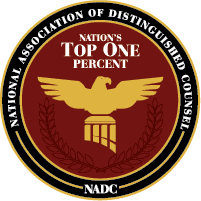Distracted driving has become one of the major causes of accidents, and victims who get hurt by a driver who is not paying attention can experience significant losses.
A Janesville auto accident lawyer represents victims of distracted driving accidents and provides assistance in pursuing a claim for compensation so monetary damages can be received for economic and non-financial losses. Drivers who want to avoid liability and keep themselves, their passengers and other motorists safe should be aware of the risks associated with distracted driving and commit to focusing on the road at all times.
Unfortunately, many motorists have the erroneous belief that they are not engaging in distracted driving if they use a hands-free device. Motorists who are aware of how dangerous it can be to hold their phone to their ear while driving or to type a text while driving may be under the misconception that they are making a safe choice if they simply use a hands-free system. Unfortunately, this is not the case.
In fact, research suggests a motorist who uses a hands-free system could be just as distracted or even more distracted than someone who is simply using a traditional hand-held product. One recent test aimed to show the impact and outcome of distracted driving on the brain was reported by the Washington Post.
AN ILLUSTRATION OF HOW DISTRACTED DRIVING AFFECTS THE BRAIN
The Washington Post published a visual demonstration of the impact of cognitive distractions. A driver who considered himself a “super tasker” and thought he was good at multi-tasking was asked to use a driving simulator while he did other simple mental tasks. He was given a simple math problem to solve and then a word to remember after doing the problem.
This happened three times, with three math problems and three words. He was then asked to list the words in order when the test was over. The first time the test was conducted, he was able to list the three words, but the second time, he could not.
An estimated 98 percent of people completing the same test have the same outcome. Their brains are simply not able to handle the processing of all the different information at once. Doing this is difficult because the math requires the use of the parietal lobe in the brain, the ability to remember words requires the use of the frontal lobe, and the visual and spatial processing necessary to drive requires the use of the occipital lobe.
While most motorists won’t have to do math problems while driving, concentrating on a phone call (or other hands-free device) and focusing on the road at the same time will also require the use of these different areas of the brain. Unfortunately, the brain simply cannot effectively simultaneously activate all of the different regions that you would need to drive safely and talk or use a hands-free device at the same time.
Drivers need to be aware of the significant cognitive limitations they experience when engaged in tasks other than driving, and should avoid the risk. If a crash does occur and the victim believes distraction was to blame, an auto accident lawyer in Janesville can help victims get the compensation they deserve.
Contact me today for a free consultation.


















